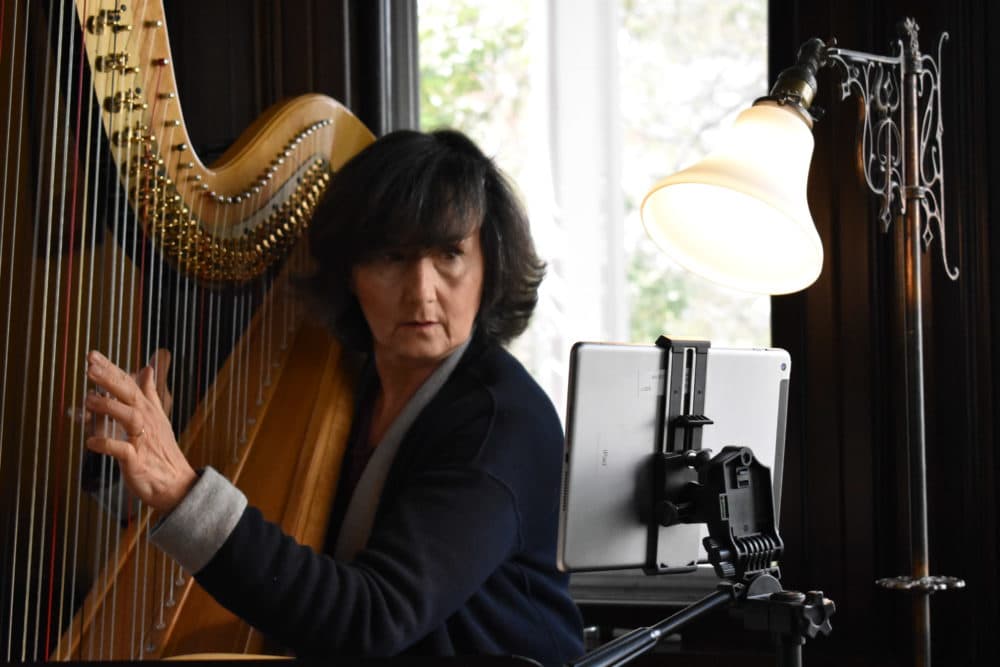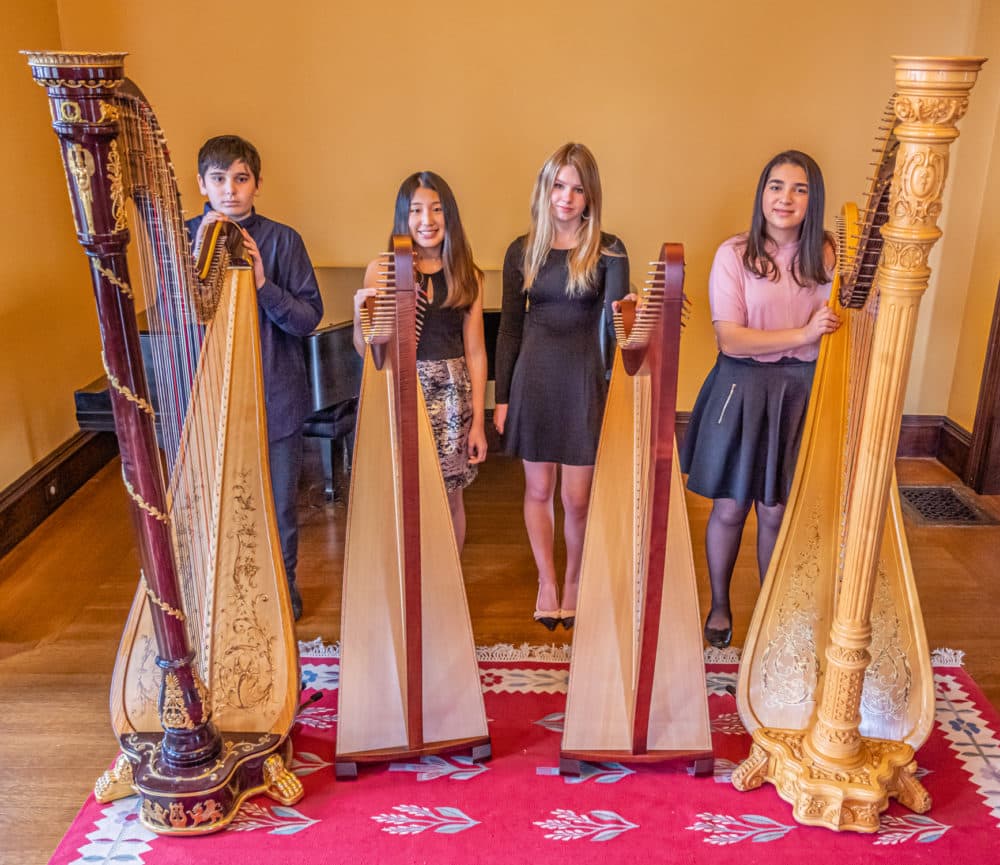Advertisement
essay
A Musician Finds It Takes Some Pluck To Teach Harp Online

In the isolation of the pandemic, many people are picking up musical instruments. There’s time for it. Music consoles and delights. It’s a welcome break from screens. And for the determined, progress can be palpable.
But for those who’d been studying or teaching an instrument the old-fashioned way, the pandemic poses unique challenges. Live-and-in-person would seem essential. It’s all about nuance of sound achieved through nuance of motion. A 360-degree view and unmediated sound would seem essential.
I’m a classically-trained harpist and harp teacher. With the lockdown, I thought I’d suspend lessons until we were allowed to enter each other’s homes. But my students – digital natives carrying on with the rest of their lives online – saw no reason harp lessons shouldn’t move there as well.
Trust your students.
It’s not better than before. There are weird electronic distortions, like the screen that turns taut harp strings into twirling strings of twisty licorice. And compression distorts the volume of sound.
Imagine a soccer or tennis clinic where the coach has a single flat perspective. You really need every angle.
But it turns out there are benefits to teaching harp online. With most of the room cut out, there are fewer distractions. When three dimensions collapse into two, there’s a weird intimacy. You can get up close, like ballroom dance partners.
You can demonstrate without replacing students in the chair. And you can take copious notes while they play, marking the music like an over-caffeinated octopus. They can’t see that.

The students are more alert and engaged than ever. I see them when they’re fresh, not after a sleepless night finishing a term paper. And they’re practicing more than ever. Maybe they’re bored at home? Waves of positive reinforcement from parents, unintended audience to every note of practice, can’t hurt.
There’s a master-apprentice tradition to the centuries-old teaching of classical music. It’s intimate and detail-oriented. It refines hearing, develops muscles, and incorporates notions of beauty, lessons in history, and the ineffable power of the classical canon.
Given the surreal times, we explore repertoire outside that canon. It’s like a class in Shakespeare suddenly reading pulp fiction. Whenever possible, we find parallels to the strange moment we’re living in.
Online lessons have forced us to see and hear from a new perspective. That’s important for artists. For all of us, actually.
We adjust and adapt because — as John Lennon and Paul McCartney remind us – life goes on.
This segment aired on June 15, 2020.